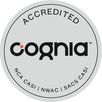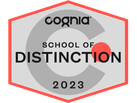IDEAVENTIONS ACADEMY
 Welcome to our new blog for Ideaventions Academy. On Tuesdays, we will be talking about our educational philosophy. We’ll be discussing topics such as homework, recess, or diving into why we have selected a particular curriculum. On Fridays, we will give you an update on our progress towards opening our doors in September. Whether it’s a construction update, the announcement of a new teacher or the selection of a curriculum, you’ll have an opportunity to join us on this amazing experience! The topic of our first Teaching Tuesday blog is Math for the gifted. Math for gifted students is especially challenging because:
Although Ideaventions Academy is a school for gifted children with a passion for the STEM fields, we envisioned similar challenges that would be encountered in a regular education classroom. Even though our class size is about eight students (much smaller than the typical public school, or even private school class), those eight students can be working at five different grade levels in math at the beginning of the year. Additionally, we expect that for some of our incoming students, their true math potential has not yet been tapped. We also recognized that each person has strengths and weaknesses within math. Think about your own math experience. Did you like geometry? How about algebra? What about probability? Even if you loved math, some math concepts came more easily to you than other math concepts. This holds true for our kids. Additionally, we have some students, who are very gifted in math, but may have learning differences and we want to develop their math talent while supporting their specific need. After much thought, we developed our requirements set for a math program:
We concluded that our math program would be a blended learning environment. Students would work on math using the online program to progress through their mathematical concepts at their own pace. In the small class environment, if a student has a question or needs a concept clarified, our teacher is there to provide the immediate support. For introverted or shy students, our teacher reviews the students’ progress daily and pulls those students that need the additional help in the next class session. The goal is that students receive immediate intervention in areas where they need help, while being able to work quickly through concepts that they easily master. Group work and real-life problems using math (to answer the question kids always ask, “When am I ever going to use this when I grow up?”) is taught through hands-on engineering and math projects. To start our search, we used the summary of online math programs in the marketplace from The Davidson Institute for Talent Development. We evaluated the different math programs and determined that Stanford University’s EPGY (Education Program for Gifted Youth), now GiftedandTalented.com, fit our needs the best. We especially liked that the program was developed specifically for academically gifted students, providing the depth and breadth that we were looking for. We are very excited to have kids working at their own pace. We want them to be challenged, but not stressed. We want them to have a good foundation in math, but learn it in such a way where they see the beauty in numbers and in problem solving. Being someone to whom numbers tell a story, I want kids to be able to discover this. We are enthusiastic about our math program! To read more:
We'll catch up again this Friday, with our Friday Update. Have a great rest of the week!
0 Comments
Your comment will be posted after it is approved.
Leave a Reply. |
AuthorJuliana Heitz is co-founder of Ideaventions Academy and is very excited to share the thinking behind the Academy. Archives
October 2023
Categories |
Copyright © 2010-2024| 12340 Pinecrest Road, Reston, Virginia 20191 | 703-860-0211 | admissions@ideaventionsacademy.org | Tax ID 27-2420631 | CEEB Code 470033
 RSS Feed
RSS Feed



